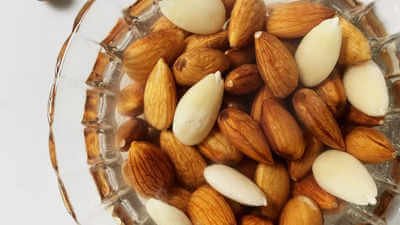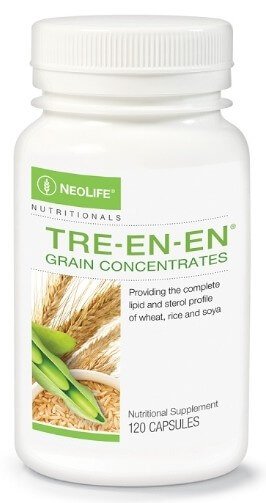What To Know About Soaked vs Dry Almonds
Let’s discuss some differences between soaked vs dry almonds. While some argue that consuming almonds raw is beneficial, others swear by the tradition of soaking them overnight. Soaked almonds have improved digestibility, enhanced nutrient availability, reduced phytic acid levels, and activated antioxidants. The soaking process also releases enzymes for weight loss, removes impurities, enhances texture for culinary use, and provides digestive comfort. Additionally, soaking unlocks phosphorus, reduces the impact of anti-nutrients, and makes almonds softer and easier to chew.
Almonds, often hailed as a nutritional powerhouse, have sparked a debate between soaked and unsoaked variants. While some swear by the tradition of soaking almonds overnight, others argue that consuming them raw is just as beneficial.
Let’s delve into the discourse surrounding soaked versus unsoaked almonds and understand the potential advantages.
Benefits of almonds
 |  |
Almonds, in their natural state, are loaded with nutrients, serving as an excellent source of fiber, proteins, vitamin E, magnesium, manganese, copper, and phosphorus.
These nutritional powerhouses contribute to weight loss, improved bone health, enhanced mood, and a reduced risk of heart disease, cancer, and diabetes.
Phytic Acid Reduction: Soaking almonds reduces phytic acid levels, an anti-nutrient that can impede the absorption of essential minerals like calcium, iron, zinc, and magnesium. By soaking, these minerals become more bioavailable, ensuring better absorption.
Why soaked Almond is better?
Improved Digestibility: Soaked almonds surpass their raw counterparts in ease of digestion. The soaking process makes them softer, aiding the digestive system in breaking them down more efficiently. This quality makes soaked almonds a preferred choice for those seeking optimal digestion.
Enhanced Nutrient Availability: Soaking almonds enhances the availability of nutrients and antioxidants.
The process not only releases enzymes like lipase, boosting metabolism and aiding weight loss but also removes impurities that could hinder nutrient absorption.
Phytic Acid Reduction: Soaking almonds reduces phytic acid levels, an anti-nutrient that can impede the absorption of essential minerals like calcium, iron, zinc, and magnesium. By soaking, these minerals become more bioavailable, ensuring better absorption.
Antioxidant Activation: Soaking almonds. activates antioxidants, such as polyphenols, present in the almond skin. These antioxidants play a crucial role in neutralizing free radicals, reducing oxidative stress, and promoting overall cellular health.
Enzyme Release for Weight Loss: The soaking process induces the release of enzymes, including lipase. Lipase is known for its role in breaking down fats. Thus, soaked almonds contribute to an improved metabolism, aiding in weight loss efforts.
Impurity Removal: Soaking almonds acts as a natural cleansing process by eliminating impurities and contaminants present on the almond surface. This additional step ensures that the almonds consumed are not only nutritious but also free from external substances. Texture Enhancement for Culinary Use: Apart from being softer for direct consumption, soaked almonds have an enhanced texture that blends seamlessly into various culinary creations.

Whether adding them to smoothies, desserts, or savory dishes, the softened almonds integrate more harmoniously.
Digestive Comfort: Individuals who experience digestive discomfort with raw almonds might find soaked almonds gentler on the stomach. The softened texture and reduced levels of certain compounds contribute to a more comfortable digestive experience.
Phosphorus Unlocking: Phosphorus, an essential mineral present in almonds, becomes more accessible after soaking.
This increased availability of phosphorus contributes to bone health, dental care, and various physiological functions.
Reduced Anti-Nutrient Impact: Soaking almonds mitigates the impact of anti- nutrients like tannins and phytic acid found in the almond skin. These compounds, when present in excessive amounts, can interfere with the absorption of essential minerals. Soaking acts as a preventive measure against this interference.
Softness and Ease of Use: Soaked almonds are softer and easier to chew, making them an ideal choice, especially for children and older individuals. The softened texture also facilitates blending for those incorporating almonds into recipes or preparing almond milk.
It is said that one should consume almonds without soaking in winters, as it supports immune function, aids in maintaining skin health against harsh weather, and provides a sustained energy boost.
The nut’s warming properties contribute to internal insulation, helping the body combat the cold. Furthermore, almonds are renowned for promoting heart health, making them a wholesome winter snack that not only satisfies cravings but also nurtures overall well-being in the frosty season.
If you are a fan of almonds, this article will surely help you to understand whether they must be soaked or not. Do let us know your thoughts on this.
Credit: timesofindia.com



I’m genuinely impressed by how you’ve managed to capture the essence of the gaming community’s current interests and concerns in this post